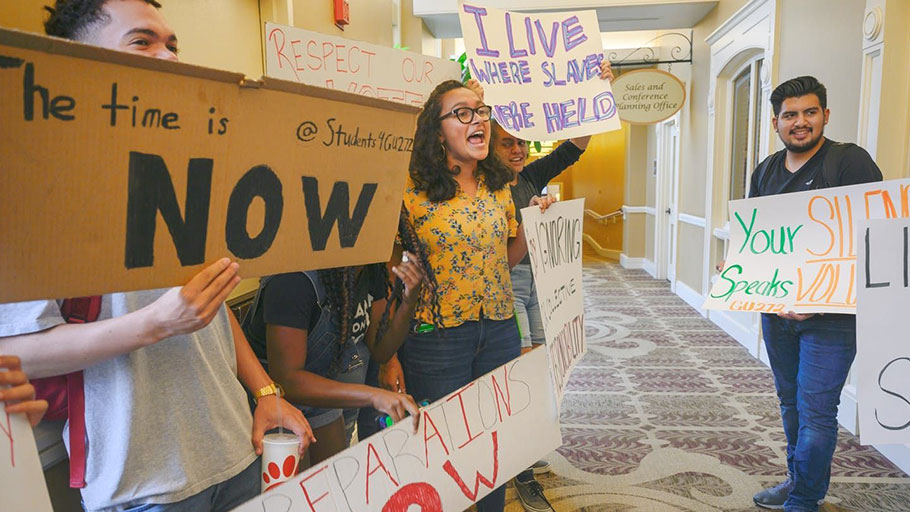Colleges and universities across the U.S. have been taking a hard look at their ties to slavery.
This isn’t an entirely new phenomenon. Back in 2006, Brown University published a report showing that the university – from its construction to its endowment – participated in and benefited from the slave trade and slavery.
And since then, several other colleges and universities have disclosed their ties to the use of slave labor.
For instance, Johns Hopkins University – whose namesake and founder has historically been portrayed as an abolitionist – reported in December 2020 that its founder actually employed four enslaved individuals in his Baltimore household.
From my vantage point as a historian of slavery, capitalism and racial inequality, the issue goes beyond whatever “connections” U.S. colleges and universities have had to slavery. Even after slavery, these schools continued to oppress Black people by not allowing them to enroll as students.
Inequitable access
Institutions that used slave labor were slow to open to African American students. Georgetown graduated its first Black undergraduate, Samuel A. Halsey Jr., in 1953.
The University of Virginia graduated its first Black undergraduate, Robert Bland, in 1959.
Yet admission to traditionally white universities is one piece of the higher education puzzle. Historically Black colleges and universities, commonly known as HBCUs, continue to have an outsize role in ensuring African American upward mobility through higher education. Even though the nation’s 100 or so HBCUs represent less than 3% of the nation’s 4,360 colleges and universities, they graduated 13% of Black undergraduate college students nationally in the 2017-2018 school year.
And the institutions that tend to enroll higher proportions of historically underrepresented groups – including African Americans – also tend to be the least well funded. That matters because students who attend better-funded colleges tend to graduate at higher rates.
Financial disparities
The disparities transcend higher education. White families, on average, tend to have 10 times the wealth of Black families. That gap is likely to grow in part because the racial wage gap is expanding.
Student loan debt also disproportionately affects Black Americans.
Four years after they graduate, Black Americans have $25,000 more debt than their white counterparts, in part because of additional graduate borrowing and accrual of interest. Consequently, African Americans face more difficulties repaying loans than their white counterparts.
Are reparations enough?
Universities are beginning to put resources toward efforts to atone for their roles in slavery.
The Virginia Theological Seminary is designating $1.7 million as a reparations fund that will be spent on scholarships and new curriculum. Princeton Theological Seminary is contributing a $27 million endowment expected to fund scholarships, community engagement, curriculum development and other efforts to atone for its ties to slavery.
St. Mary’s College of Maryland has built the first memorial to enslaved people of Southern Maryland on its campus. I spoke with St. Mary’s history professor Garrey Dennie, who says that the college is building “a curriculum that is attentive to the experiences of African Americans both in the present and in the past” as part of an effort to right past wrongs.
Yet scholars and economists studying racial economic inequality, such as William A. Darity Jr., point to the need for federal action. This action could range from economic reparations and endowment-building at HBCUs to debt forgiveness for Black students.
As colleges and universities continue to examine how they benefited from slavery and shut out African Americans from their campuses for a century after slavery was abolished, reparations only to the descendants of those who were enslaved by agents of a particular college might be just one part of the equation.
To eliminate the educational disparities that they helped uphold after slavery, former slaveholding colleges must, I believe, address inequality on a much broader level. At the heart of the matter is the extent to which Black Americans can afford to pay schools that once paid nothing for the labor of the people they enslaved.
Source: The Conversation















